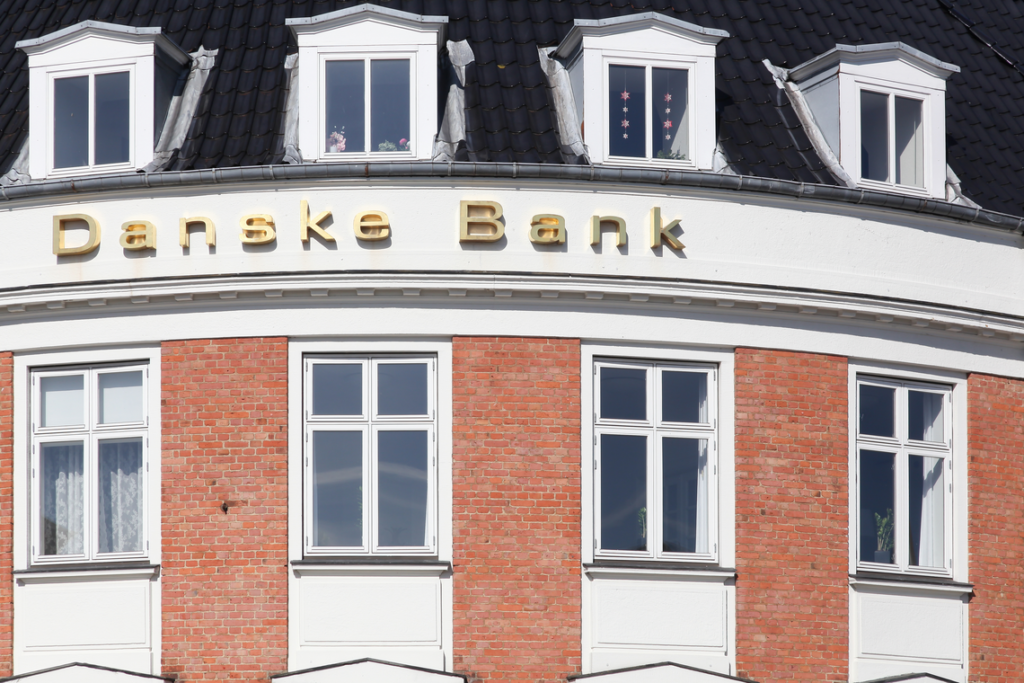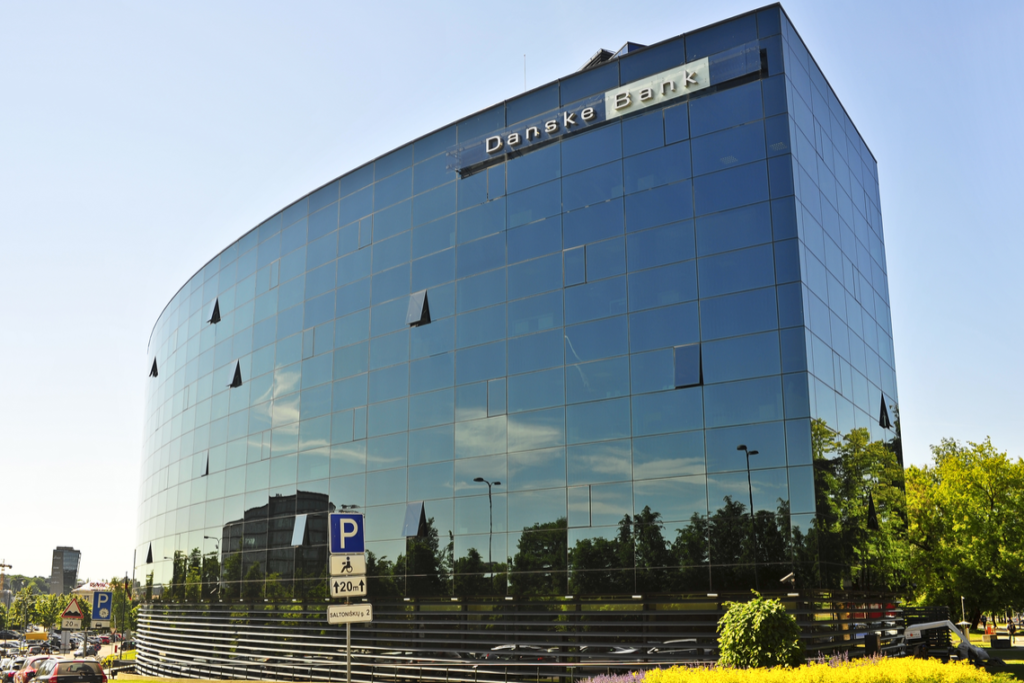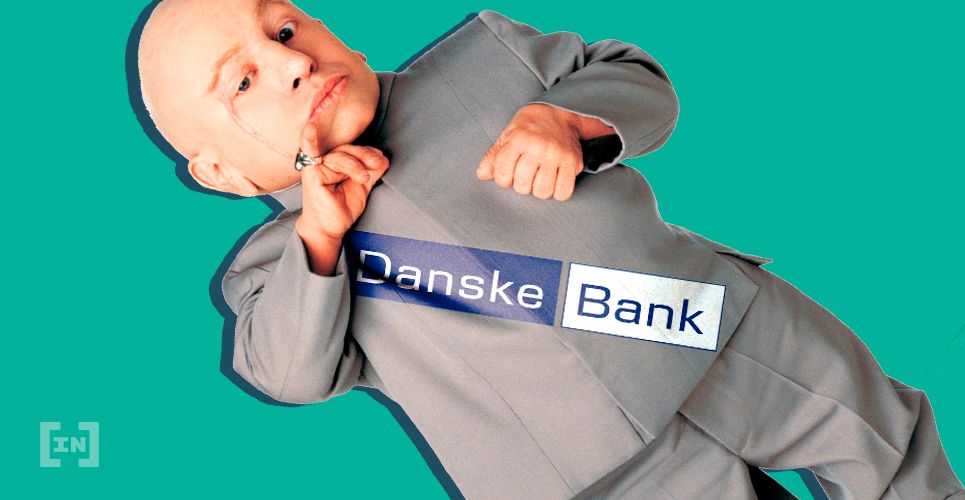Danske Bank, currently one of the largest banks in Northern Europe, has repeatedly been investigated for its involvement in laundering as much as €200 billion through its Estonian branch — following a string of accusations over its enabling of terrorists, corrupt politicians and dictators to illegally move funds.
The Organized Crime & Corruption Reporting Project, or OCCRP, is a non-government organization that was founded in 2006 and specializes in the investigation and reporting of organized crime and corruption. The goal of the organization is to ensure those involved in organized crime and corruption are brought to light while helping people understanding how the damage caused by criminal activity adversely affects their lives.
Since 2012, the OCCRP has offered an award for Person/Actor of the Year which, contrary to how it might sound, actually recognizes the individual or entity that has contributed the most towards globalized corruption in the last year.
Previous winners of the not so prestigious award include Nicolás Maduro, the current president of Venezuela, for his role in destroying the country’s economy. The Romanian parliament has also found itself the recipient of the award. Russia’s Vladimir Putin has been a finalist every year and won the award in 2014 for his work in turning Russia into a global money-laundering hub. On top of this, Putin was also described by the OCCRP as a real innovator when it comes to working with organized crime — quite the ‘compliment.’

And The Winner Is…
This year’s infamous winner is none other than Danske Bank — currently the largest bank in Denmark, operating throughout much of Northern Europe with several million customers internationally. The bank originated in Copenhagen in 1871 as Den Danske Landmandsbank, before going on to merge with several regional banks and rename itself Danske Bank in the year 2000. In the last 20 years, Danske Bank has reportedly been involved with furthering the progression of organized crime, having links to several known and suspected criminal organizations, including the Mexican cartel, dictators, and even terrorist groups. According to OCCRP co-founder Drew Sullivan, Danske Bank is a worthy recipient for the prize and highlights how the criminal services industry enables corruption and crime. In this context, the criminal services industry refers to the intermediaries such as banks and accountants that help criminals legitimize their ill-gotten gains or hide their assets.Most recently, the bank found itself under investigations by the United States Department of Justice after it was uncovered that around €200 billion in non-resident money had been laundered through the bank’s Estonian branch between 2007 and 2015. In September, the Denmark Financial Supervisory Authority reopened its investigations into the Danske bank after closing down the non-resident portfolio in Estonia and reprimanding the bank earlier this year, while the United Kingdom’s National Crime Agency said it was investigating whether the bank used UK-registered businesses to ‘clean’ funds. The investigation began several years after Howard Wilkinson, head of the bank’s Baltic trading unit, alerted the executive board about the suspicious happenings of the Estonian branch. These warnings were, however, ignored. This scandal goes down on record as one of the largest money laundering operations in history, dwarfing the $6 billion international money laundering scheme unraveled by the U.S. Secret Service and operated by the Liberty Reserve in 2013. According to the report, Danske Bank has been involved in several illegal operations which acted to enable and even promote the laundering of money through its Estonian branch. One of these saw billions of dollars flow billions of dollars laundered out of Azerbaijan to offshore and European politicians, facilitating the corruption of the corrupt Aliyev family. The bank was also involved in fraudulently moving as much as $80 billion out of Russia in the ‘Global Laundromat’ operation — reportedly involving Russian oligarchs, Moscow bankers, and members of the Federal Security Service (Russia’s successor to the KGB). On Sep 19, 2018, Danske Bank confirmed that its CEO Thomas Borgan would resign due to the ongoing scandal, while analysts expect the bank to suffer a hefty fine over the issue — but will be unlikely to lose its banking license over the issue.Danske Bank is OCCRP’s Corrupt Actor of the Year for 2018.
— Organized Crime and Corruption Reporting Project (@OCCRP) December 29, 2018
The bank has enabled the laundering of billions of dollars through Europe, allowing criminals and corrupt officials to park their ill-gotten proceeds around the world. https://t.co/q9KUjenRqY pic.twitter.com/5VzWsTYbeo

Can Bitcoin Prevent Money Laundering?
According to its most recent annual report, Danske Bank has total assets in excess of almost €500 million, or $542 billion. As it stands, this is more than four times larger than the entire market capitalization of the cryptocurrency industry — which currently sits at just shy of $130 billion. The amount of money Danske Bank is capable of laundering far exceeds that of all cryptocurrency users combined, while just the €200 billion in the recent money laundering exposé exceeds the yearly trade volume of the great majority of cryptocurrencies. Despite this, Bitcoin (BTC) and many other cryptocurrencies continue to be slammed for facilitating money laundering — despite the fact that that the top 10 largest cryptocurrencies operate on a public blockchain. Unlike cash, which is practically anonymous and untraceable once transferred, cryptocurrencies such as Bitcoin record all transactions in public on an immutable distributed ledger. Combine this with the fact that most exchanges require KYC, and hence the tagging of identity to an address, and you’ve got a perfectly auditable blockchain that is free from manipulation. With many governments increasingly pushing exchanges and wallet providers to enforce KYC, it appears to be only a matter of time before cryptocurrencies lose the cloud of skepticism that surrounds them and are instead appreciated for the transparency they can offer. What are your thoughts on Danske Bank? Do you think the bank officials will suffer any repercussions for their involvement and lack of intervention? Let us know in the comments below!Disclaimer
In adherence to the Trust Project guidelines, BeInCrypto is committed to unbiased, transparent reporting. This news article aims to provide accurate, timely information. However, readers are advised to verify facts independently and consult with a professional before making any decisions based on this content. Please note that our Terms and Conditions, Privacy Policy, and Disclaimers have been updated.

Daniel Phillips
After obtaining a Masters degree in Regenerative Medicine, Daniel pivoted to the frontier field of blockchain technology, where he began to absorb anything and everything he could on the subject. Daniel has been bullish on Bitcoin since before it was cool, and continues to be so despite any evidence to the contrary. Nowadays, Daniel works in the blockchain space full time, as both a copywriter and blockchain marketer.
After obtaining a Masters degree in Regenerative Medicine, Daniel pivoted to the frontier field of blockchain technology, where he began to absorb anything and everything he could on the subject. Daniel has been bullish on Bitcoin since before it was cool, and continues to be so despite any evidence to the contrary. Nowadays, Daniel works in the blockchain space full time, as both a copywriter and blockchain marketer.
READ FULL BIO
Sponsored
Sponsored

